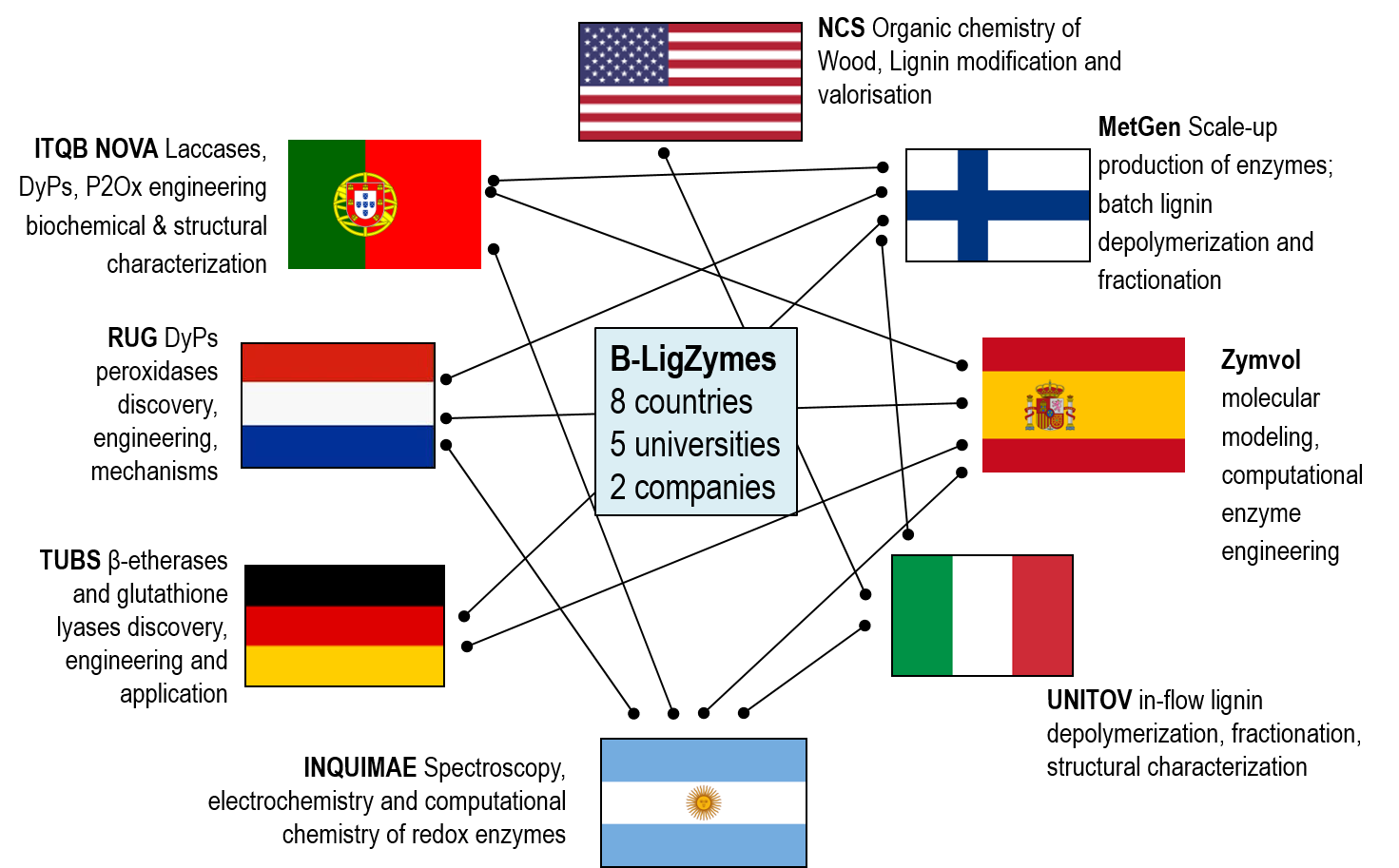Biorefineries for the XXI century
Oeiras, 30.11.2018
B-LigZymes is an EU funded RISE project, a consortium coordinated by ITQB NOVA with 6 academic organizations and 2 companies to addresses current limitations in lignocellulose degradation. The aim is to generate eco-friendly technological and economical solutions inspired by fundamental research, leading to increasingly knowledge-based, inclusive, circular-economy. The project now signed will officially start in February 2019, and is endowed with 1 million euros for training and staff exchange for the next four years.
The industrial exploitation of plant biomass is a promising alternative source of renewable chemicals, materials, energy and fuels for future sustainable development. Lignin is the most abundant aromatic polymer on Earth and the second most abundant raw material next to cellulose but is currently considered a bio-waste by lignocellulose industries due to its resistance to degradation, which makes it very difficult and expensive to reuse. Working on new and eco friendly ways to break it down to its components could open the possibility of developing lignin-based products - the market for these products is estimated to be around 12 billion € by 2020-2025, with lignin-based phenols and carbon fibres poised to capture the largest market potential.
"B-LigZymes relies on a holistic approach for the development of sustainable biocatalytic processes based in bacterial systems largely unexplored but potentially rich in new ligninolytic enzymes for biotech use. B-LigZymes goals are to identify and isolate new bacterial ligninolytic enzymes, improve their performance and robustness relying on iterative experimental and computational protein engineering tools, and set-up enzymatic processes for lignin depolymerization and fractionation into a phenolics platform for environmental friendly breakthrough applications", according to Lígia Martins, coordinator of the B-LigZymes. "We have put together an international, interdisciplinary and intersectorial consortium, and we are looking forward to present some results of this melting pot during the next four years". The existent complementarity among partners enables bi-directional international and intersectorial staff exchanges and the sharing of knowledge and ideas from research to market and vice-versa.
ITQB NOVA team includes Lígia O Martins (coordinator of B-Ligzymes) and researchers Smilja Todorovic (Raman BioSpectroscopy Lab), Vânia Brissos (Microbial and Enzyme Technology), Tiago Cordeiro (Dynamic Structural Biology Lab) and Carlos Frazão (Structural Biology Lab).

B-Ligzymes consortium
- ITQB NOVA, Portugal
- University of Groningen RUG, The Netherlands
- University of Rome Tor Vergata UNITOV, Italy
- Technical University of Braunschweig TUBS, Germany
- North Caroline State University NCS, United States of America
- INQUIMAE, a joint research and high education institute of the University of Buenos Aires (UBA) and the National Research Council (CONICET), Argentina
- ZymVol Biomodeling SL, company, Spain
- MetGen Oy, company, Finland







